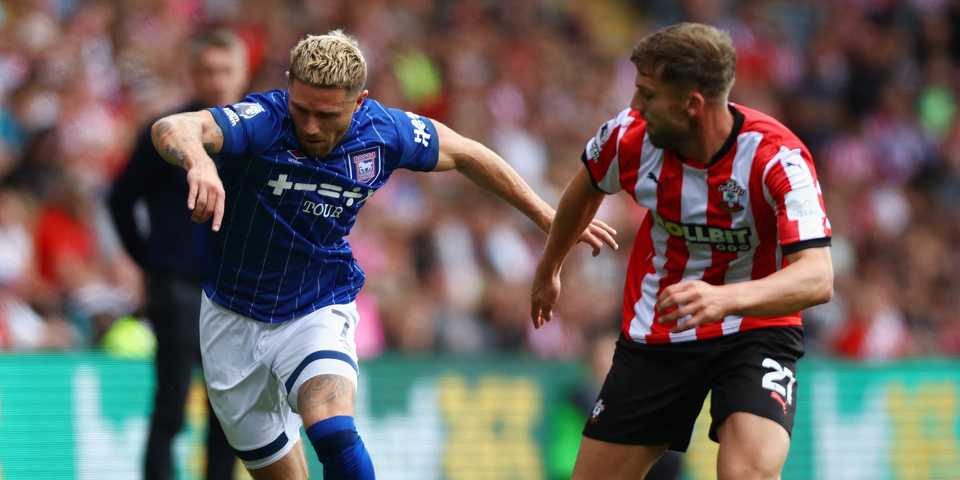As the inaugural season of the 12-team College Football Playoff approaches its climax, the controversy surrounding the rankings continues to intensify.
The most notable outcome of the penultimate rankings released on Tuesday was Alabama’s placement at No. 11, putting them on track to be the last at-large team in the field. This ranking put Alabama (9-3) ahead of No. 12 Miami (10-2) and two other three-loss SEC teams—No. 13 Mississippi and No. 14 South Carolina. Two days later, Alabama athletics director Greg Byrne shared his thoughts with AL.com about the playoff, its seeding, and the ongoing debates.
“I was obviously pleased,” Byrne said, “and understand that the committee faces tough decisions, but I feel there are some things worth noting. One of their primary principles is strength of schedule. They want to select the 12 best teams, and I believe we’re among those 12. The committee recognized that.”
Byrne acknowledged the frustration felt by teams left out, saying, “Yes, I absolutely understand their frustration.”
This is about distinguishing between winners and losers. With his experience as a member of the NCAA men’s basketball tournament selection committee, Byrne expressed empathy for the tough choices made by the 13-member CFP committee. His background shapes his perspective on the current debate.
“One thing I take seriously is evaluating the last few teams competing for those final spots,” Byrne said. “For many of these players, this could be their only chance to compete in a major game. I want to ensure we’re providing that opportunity for the teams that have played the toughest schedules and positioned themselves well.”
Scheduling was a central theme of Byrne’s comments during his Thursday conversation with AL.com.
“That’s why it’s not just about comparing two versus three losses,” Byrne explained. “You have to look at the entire picture, and that’s crucial for the game. Looking ahead, I strongly believe that scheduling quality non-conference games is essential for college football. We have scheduled several strong home-and-home matchups for the future, and we should continue to do so. It should be acknowledged that playing a tougher schedule may result in an additional loss or two compared to teams with softer schedules.”
Alabama defeated all four of its non-conference opponents this season, including a notable 42-14 victory at Wisconsin, before losing three SEC road games. Last year, Alabama’s only regular-season loss came to Texas (then in the Big 12) before recovering to claim the final spot in the four-team playoff.
The Crimson Tide has committed to two Power 4 non-conference games every year until 2034, with games scheduled against Florida State and Wisconsin in 2025.
South Carolina’s head coach, Shane Beamer, expressed frustration with the committee’s ranking, particularly after his team won a key non-conference game at Clemson, which was ranked 12th at the time.
Meanwhile, teams like No. 9 Indiana (11-1) with a relatively weak schedule—ranked 65th by ESPN—are still safely in the field. Indiana had no ranked wins and faced non-Big Ten opponents such as FIU (4-8), Western Illinois (4-8), and Charlotte (5-7).
Given that the CFP committee doesn’t penalize one-loss power conference teams with weaker schedules, Byrne said he hasn’t reconsidered his aggressive scheduling approach.
“Not yet,” Byrne replied. “You want to see the final poll, but I strongly believe that teams playing a tough conference schedule along with a challenging non-conference slate should be rewarded when possible.”
Does he think his strategy has been recognized?
“Yeah,” Byrne said, “I do believe so, yes.”
This brings us to the ongoing debate about SEC scheduling. Currently, each SEC team plays eight conference games, with one of their four non-conference games required to be against a Power-4 school.
Byrne didn’t seem eager to adopt a nine-game SEC schedule in the current format.
“Having SEC games is positive because our fans and players enjoy those matchups,” Byrne said. “But if we go to nine SEC games and two Power-4 non-conference games, that’s a lot.”
He believes a broader perspective is needed when evaluating whether to add more conference games.
“We need to look at the overall picture—would we be better off with eight SEC games and two Power-4 non-conference games, or would it be more beneficial to play nine SEC games? If we move to nine, we’ll have to consider how many Power-4 non-conference games we play.”
These decisions are for future seasons, especially with uncertainties surrounding the playoff’s structure after the current contracts conclude next year.














Leave a Reply